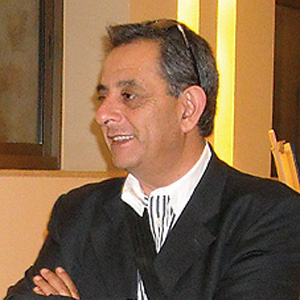In 1984, a Palestinian family decided to hold a family reunion in Cyprus. Around forty members of the extended family came from the Middle East and Europe, and all had a lovely time. The political situation back then was not dandy, but at least it was quiet here in Palestine. There were no check points on the roads, and people could drive to Jerusalem, Ramallah, Nablus, and even Gaza without interruption. I don’t recall that the settlements were an issue yet. At least, this is what we Palestinians thought.
Recently, the new West Bank city of Rawabi inaugurated its open mall with stylish cafés and fashion shops, most of which are selling upscale international brands. Unless I missed it, I can’t say that there was much debate or controversy over this event on social media, even though there was some. I have not visited the open mall area, but I watched a documentary about it online. The open mall is, no doubt, similar to malls that can be found in any upscale neighborhood in Amman, Beirut, Dubai, even a European city. You don’t have to spend a lot of money to visit, enjoy the ambiance, and have a cup of coffee. I assume, the mall offers shopping that ranges from the reasonable to the quite expensive, considering the average wage Palestinians earn. It is the same as everywhere else in the world, I suppose.
Expectedly, any social or business endeavor in Palestine must have political implications and ramifications, the least of which are people’s commentaries on social media. Palestinians can agree to blame the occupation for that! There would be no questions asked and no eyebrows raised over the opening of a fancy mall, if we were not living under occupation. Comments naturally range from “Life simply must go on, even under occupation!” to “Palestinians are being killed, imprisoned, and their homes razed to the ground, and you do this?” Of course, no consensus on who is right and who is wrong is expected from such a debate, but I like the following comment on Facebook, which in my opinion was posted by a wise man: “There is nothing wrong with finding a sense of normalcy in this place, just don’t negate the pain and suffering of the majority of Palestinians, especially when you address an Israeli audience.” The documentary was first aired on an Israeli channel. Fair enough!
Thirty three years later, this summer, the same Palestinian family organized yet another family reunion, this time in Greece. Well over eighty members of the extended family flew in from the Middle East, Europe, and even the United States. Knowing that family’s politically-correct stance, and considering how much they have given to Palestine, I cannot but commend their initiative to foster closer family ties and, yes, have a good time while doing so. After all, family cohesion is essential to the social fabric of any community. And life indeed must go on. What is normal and what is acceptable in Palestine can be argued – but all agree that the occupation is what constitutes the abnormality in the argument.


